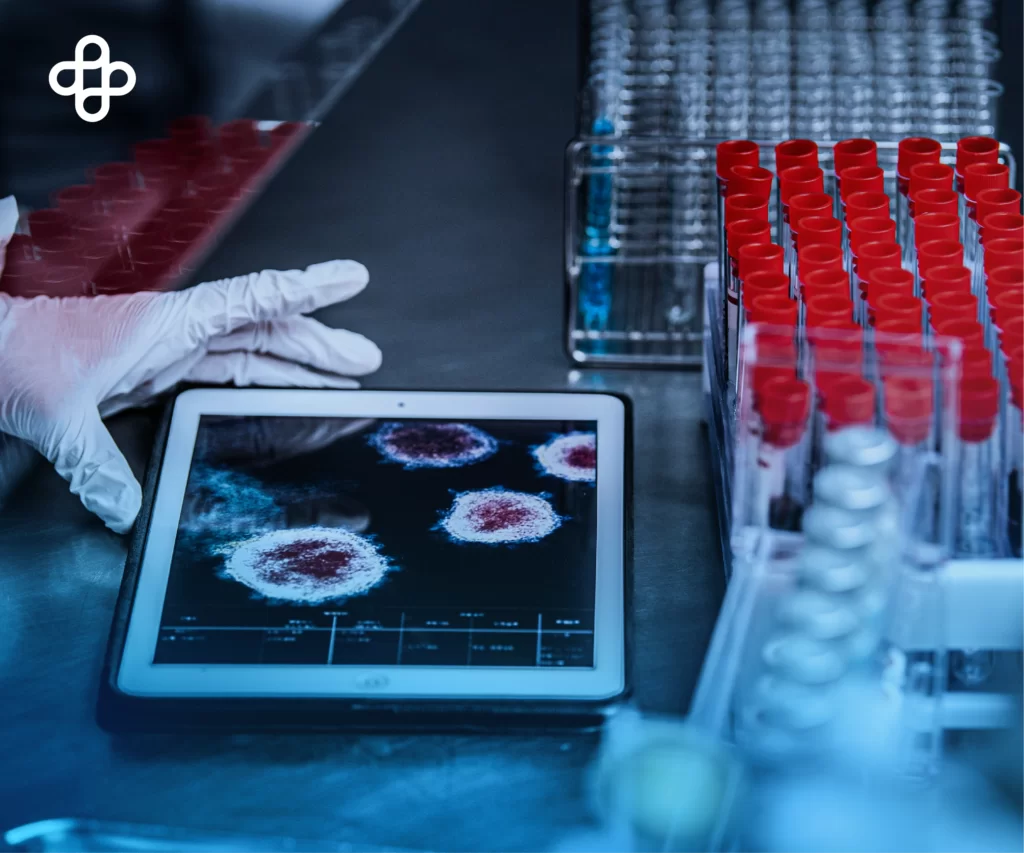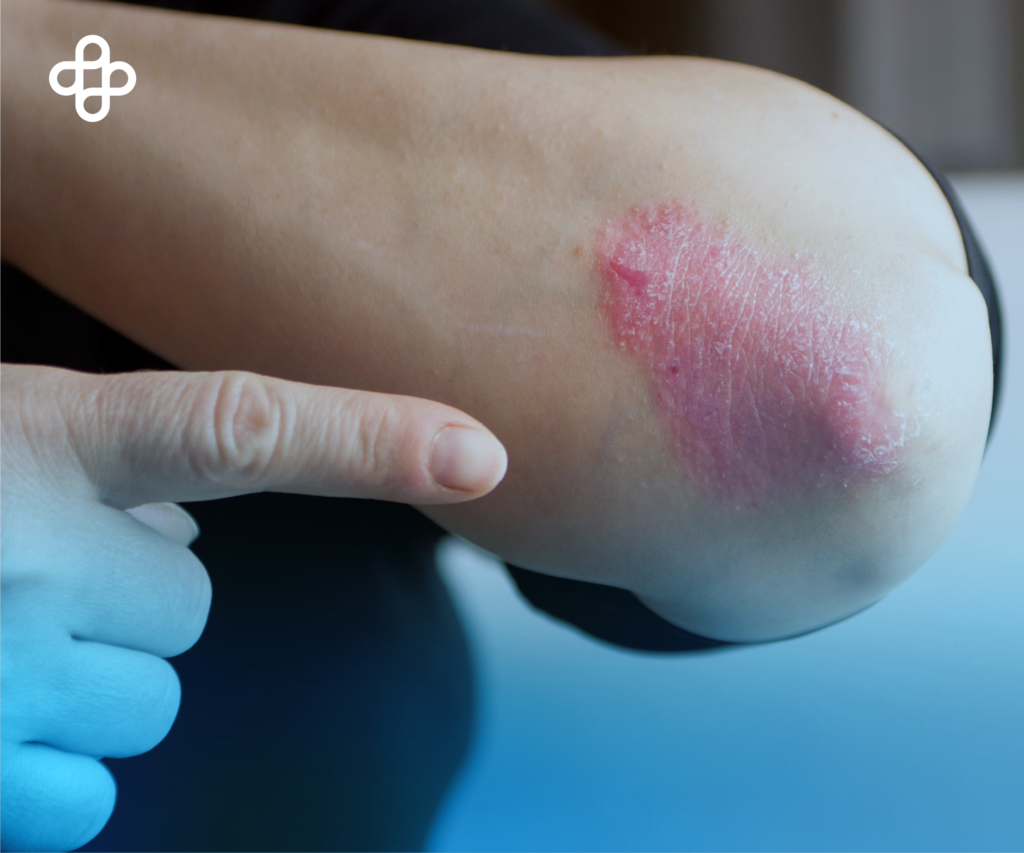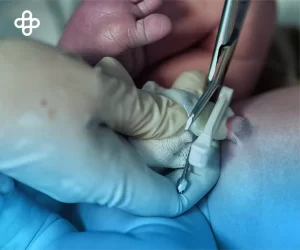Psoriasis is a chronic autoimmune skin disease that affects over 125 million people worldwide. According to figures published by the Journal of Investigative Dermatology in 2017. Patients with psoriasis suffer physical symptoms, psychological effects, and social consequences resulting in costs of around $135 billion annually in the United States alone.
Ivonne Arellano Mendoza, Head of the Dermatology Department at the General Hospital of Mexico. Mentioned that in Mexico, around 2.5 million people suffer from psoriasis. With 25 to 30 percent being moderate, 70 to 75 percent mild, and 25 to 30 percent moderate to severe.
Research
“Psoriasis generates social and psychological stress in patients and we associate it with the risk of diabetes and cardiovascular disease, among others. In these cases, we could prescribe steroids and biological products. We don’t have a cure because we haven’t understood the cause,”. Explains the study’s co-author George Murphy, Director of the Dermatopathology Program in the Department of Pathology at Brigham. “Our initial finding is that the thickening of the skin in psoriasis is due to the accumulation of deregulated stem cells. Their progeny is exciting because it represents a new way of thinking about an ancient and significant skin disease.”
To better understand the basis of the deregulated behavior of skin stem cells. Researchers focused on the epigenome, the methylated envelope covering each DNA strand that orchestrates how individual genes behave.
Certainly, “Without understanding the underlying mechanism of a disease, it’s difficult to find effective treatments,” recalls co-senior author Christine Lian, a dermatopathologist in the Department of Pathology at Brigham. “The question we decided to pursue was: Is there an epigenetic abnormality in psoriasis that can explain why stem cells misbehave?”
Lian, Murphy, and their colleagues found a defect in the epigenetic cover that resulted in the loss of a DNA hydroxymethylation methylation mark. Known as 5 hmC loss, this defect was found in cells from patients with psoriasis but not in other skin conditions that produce similar skin thickening, such as areas resembling calluses due to chronic irritation. The team replicated the defect in a mouse model of psoriasis and found that it preferentially affected genes that regulated skin cell function.

5-hmC
Loss Lian and Murphy have previously shown that 5 hmC loss in the skin’s epigenome can be reprogrammed using fundamental agents such as ascorbic acid (vitamin C). They reasoned that therapeutically correcting the epigenomic defect in psoriasis could reverse the entire process. Based on experiments with skin stem cell cultures in the laboratory. The team presents promising preliminary data suggesting that 5-hmC levels can be restored to correct the observed deficiency in psoriasis.
The researchers point out that while there is much interest in the role of vitamin C. Additional research is needed to develop and test effective treatments. Simply taking a vitamin supplement is likely to have little effect. The team has begun working on the next steps of research. Which will include three-dimensional bioprinting of skin stem cells in the context of their supporting niches to test other epigenetic reprogramming agents.
Stem Cells and Psoriasis Study at Xiangya Central South University Hospital in China
In June 2022, a clinical trial, “Human Umbilical Cord Mesenchymal Stem Cells for Psoriasis”. Conducted at Xiangya Central South University Hospital in China. Demonstrated the use of mesenchymal stem cells (found in the bone marrow). Represents an option to help reduce the observed autoimmunity in difficult-to-treat psoriasis patients, by reducing the presence of plaques and lesions.
In the clinical trial, efficacy and safety were evaluated by injecting four doses of mesenchymal stem cells obtained from umbilical cord tissue into psoriasis patients. Healthcare professionals administered these injections intravenously every two weeks. Followed by a six-month follow-up to assess the severity of the disease in different clinical tests.
The treatment lasted for six months, and the team completed the procedure and follow-up. The team led by researcher Lamei Cheng reported that 47% of people had a 40% improvement in the PASI score. PASI stands for the Psoriasis Area and Severity Index and is the most widely used tool for measuring psoriasis severity.
The results of this clinical trial show that an infusion of mesenchymal cells is safe. Does not cause adverse effects. Regarding efficacy, the results show that 50% of patients treated with these cells had a decrease in symptoms. At the end of the trial period, 17% had no symptoms of the disease. Which is undoubtedly very encouraging, according to the specialists who conducted the test.
Conclusions
Research efforts, such as those conducted by George Murphy and his colleagues. Have revealed valuable insights into the underlying mechanisms of psoriasis, particularly the deregulated behavior of skin stem cells. The identification of epigenetic abnormalities, specifically the loss of a DNA hydroxymethylation methylation mark (5 hmC loss). Offers a promising avenue for further exploration and potential therapeutic interventions. Understanding the epigenetic basis of the disease is crucial for developing effective treatments. The team’s focus is on correcting the observed deficiency in psoriasis through reprogramming 5-hmC levels. Presents a hopeful direction for future investigations.
Furthermore, Xiangya Central South University Hospital in China conducted the clinical trial. This represents a significant advancement in exploring mesenchymal stem cells obtained from the umbilical cord. Tissue as a potential therapeutic option for psoriasis. The positive results included a notable improvement in the Psoriasis Area and Severity Index (PASI) scores. Highlight the safety and efficacy of this approach. The infusion of mesenchymal cells not only proved safe without adverse effects. But also demonstrated a substantial decrease in symptoms for a significant percentage of patients.
In summary, the convergence of research efforts in understanding the molecular mechanisms of psoriasis. Exploring epigenetic abnormalities, and advancing clinical trials with innovative stem cell therapies offers a comprehensive approach to tackling this challenging skin condition. Stem cells, with their ability to repair affected areas of the skin and prevent the recurrence of lesions. Emerge is a promising avenue for complete control and, in some cases, the disappearance of symptoms associated with psoriasis. These advancements underscore the potential for groundbreaking treatments that can significantly enhance the quality of life for individuals affected by this chronic and often debilitating skin disease.
Finally, we invite you to learn more about this topic with our article “What Are Stem Cells?“





